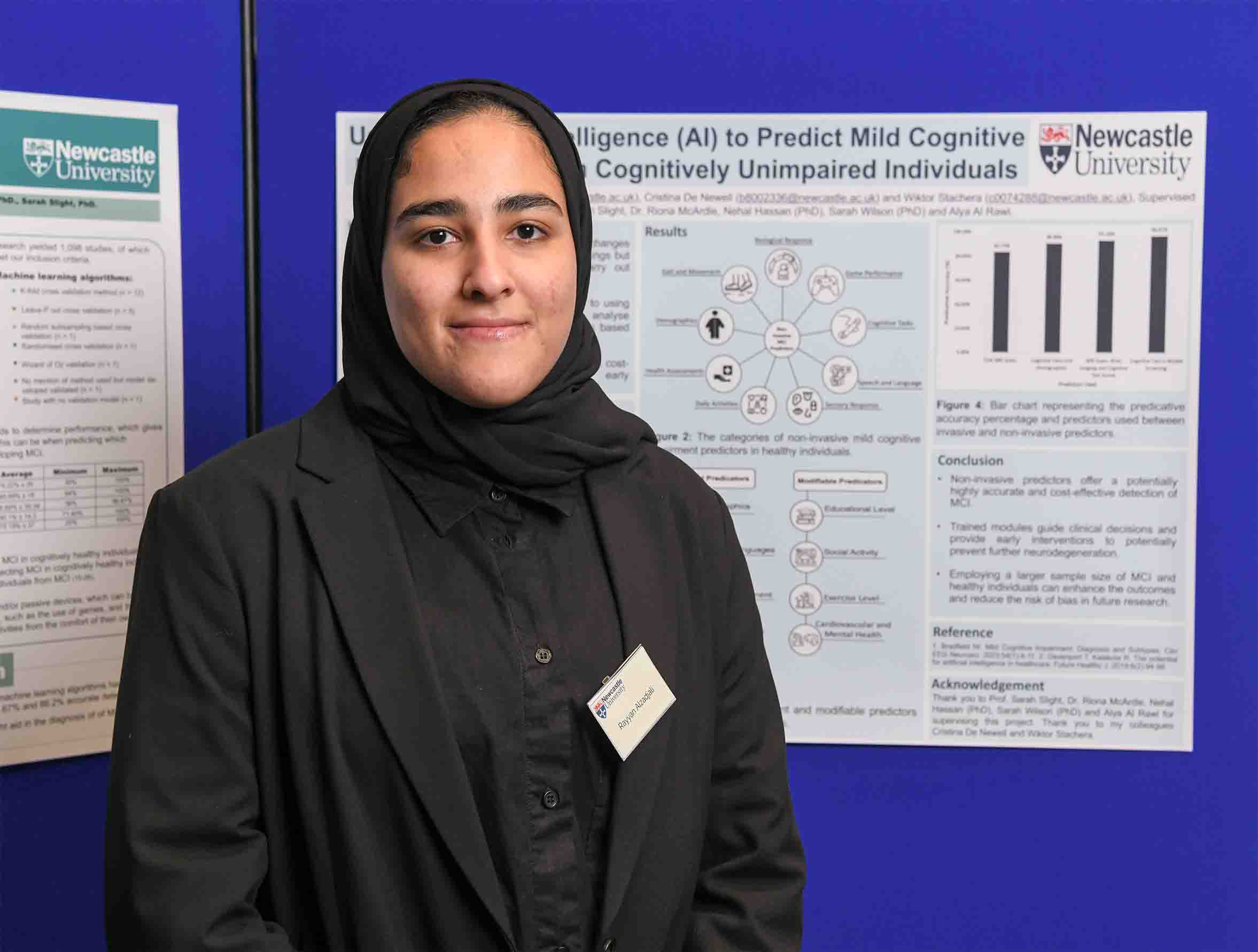2023 Participants
 Rayyan Al-Zadjali
Rayyan Al-Zadjali
- Predictors for Mild Cognitive Impairment in Cognitively Unimpaired Individuals using artificial intelligence; a systematic review
- Master of Pharmacy with Honours
Mild Cognitive Impairment (MCI) is a cognitive change that does not considerably disrupt an individual’s ability to carry out everyday activities. Artificial Intelligence (AI) in healthcare refers to the use of advanced machine learning algorithms to analyse complex medical data and identify patterns in the data. Using non-invasive predictors in AI models holds promise for improving early MCI detection, especially in high-risk groups. We conducted a systematic review to identify non-invasive predictors used to develop AI models for early MCI detection in healthy individuals. Four databases were searched including Web of Science (WoS), MEDLINE, EMBASE, and Cumulated Index in Nursing and Allied Health Literature (CINAHL). Twenty-two articles, revealing 379 non-invasive predictors categorised into nine groups with demographics, speech parameters, gait parameters, and cognitive test performance being the most common. MRI scans achieved 83.75% accuracy, while non-invasive predictors, particularly cognitive tests and demographics, demonstrated 90.80% accuracy. Combining predictors like MRI scans, other imaging techniques, and cognitive scores yielded an average accuracy of 88.50%. The highest accuracy (96.67%) was achieved through a simple cognitive test via a mobile screening system. AI models can inform clinical decision making on MCI early detection. Non-invasive predictors offer a potentially highly accurate and cost-effective technique for detection of MCI. Trained modules could guide clinical decision-making and put interventions in place to potentially prevent further neurodegeneration.
Funded by: Newcastle University Research Scholarship
Project Supervisors: Professor Sarah Slight, Dr. Riona McArdle, Nehal Hassan (PhD), Sarah Wilson and Alya Al Rawi.
